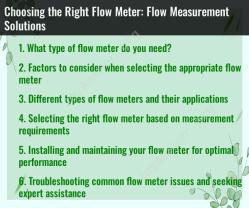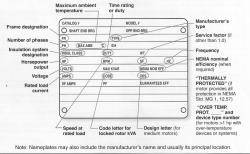What is the role of application engineer?
An Application Engineer plays a crucial role in the development and deployment of software applications. The responsibilities and skills associated with this role may vary depending on the specific industry, company, or project. However, here are some common aspects of the Application Engineer role:
Responsibilities:
Application Development:
- Design, develop, and maintain software applications based on user requirements and specifications.
System Integration:
- Integrate different software systems and ensure they work seamlessly together.
Testing and Debugging:
- Conduct thorough testing of applications to identify and fix bugs and issues. Debug and troubleshoot problems as they arise.
Documentation:
- Create and maintain comprehensive documentation for applications, including user manuals and technical documentation.
Collaboration:
- Work closely with cross-functional teams, including software developers, system architects, and quality assurance professionals.
Client Support:
- Provide technical support to clients or end-users, addressing their concerns and resolving issues related to the application.
Deployment:
- Oversee the deployment of applications, ensuring a smooth transition from development to production environments.
Continuous Improvement:
- Stay updated on industry trends and technologies. Propose and implement improvements to existing applications and processes.
Performance Optimization:
- Monitor and optimize the performance of applications to ensure efficiency and responsiveness.
Security Compliance:
- Implement security best practices and ensure that applications adhere to security standards and policies.
Skills:
Programming Languages:
- Proficiency in programming languages relevant to the specific technology stack (e.g., Java, Python, C#).
Software Development:
- Strong understanding of software development methodologies, tools, and best practices.
Database Management:
- Knowledge of database systems and proficiency in SQL for data manipulation and retrieval.
Problem-Solving:
- Strong analytical and problem-solving skills to identify and resolve issues effectively.
Communication:
- Excellent communication skills to collaborate with team members and effectively convey technical information to non-technical stakeholders.
System Architecture:
- Understanding of system architecture and the ability to design and integrate software components.
Testing Frameworks:
- Familiarity with testing frameworks and methodologies for ensuring the quality of applications.
Deployment Tools:
- Knowledge of deployment tools and processes for releasing applications into production environments.
Continuous Integration/Continuous Deployment (CI/CD):
- Experience with CI/CD pipelines to automate and streamline the software delivery process.
Adaptability:
- Ability to adapt to new technologies and methodologies as the industry evolves.
The specific requirements for an Application Engineer can vary based on the company's needs and the nature of the projects they are involved in.
What responsibilities are associated with the role of an application engineer?
The responsibilities of an application engineer can vary depending on the specific industry or company, but they generally fall into three main categories: development, support, and collaboration. Here's a closer look at each:
Development:
- Designing and building software applications: This could involve writing code, creating user interfaces, integrating different technologies, and optimizing performance.
- Testing and debugging applications: Identifying and fixing bugs, ensuring functionality, and improving user experience through iterative testing.
- Developing and implementing technical documentation: Writing clear and concise instructions for other developers and users.
- Staying up-to-date with the latest technologies: Continuously learning new programming languages, frameworks, and development tools.
Support:
- Providing technical support to users: Troubleshooting issues, answering questions, and helping users understand how to use the application.
- Analyzing and resolving application errors: Identifying the root cause of problems and implementing solutions.
- Monitoring application performance: Tracking key metrics and identifying areas for improvement.
- Collaborating with other teams: Working with product managers, designers, and customer support to ensure the application meets all needs.
Collaboration:
- Communicating effectively with stakeholders: Providing regular updates on progress, presenting ideas, and explaining technical concepts to non-technical audiences.
- Working as part of a team: Collaborating with other developers, designers, and project managers to achieve common goals.
- Contributing to the overall technical vision: Sharing ideas for improving the application and participating in strategic planning.
Additional responsibilities:
- Writing code reviews: Analyzing the code written by other developers and providing feedback.
- Automating tasks: Creating scripts and tools to streamline repetitive processes.
- Performing data analysis: Extracting insights from application data to make informed decisions.
Remember, this is just a general overview. The specific responsibilities of an application engineer will vary depending on the context of the job.
I hope this gives you a good understanding of the diverse and challenging role of an application engineer!











